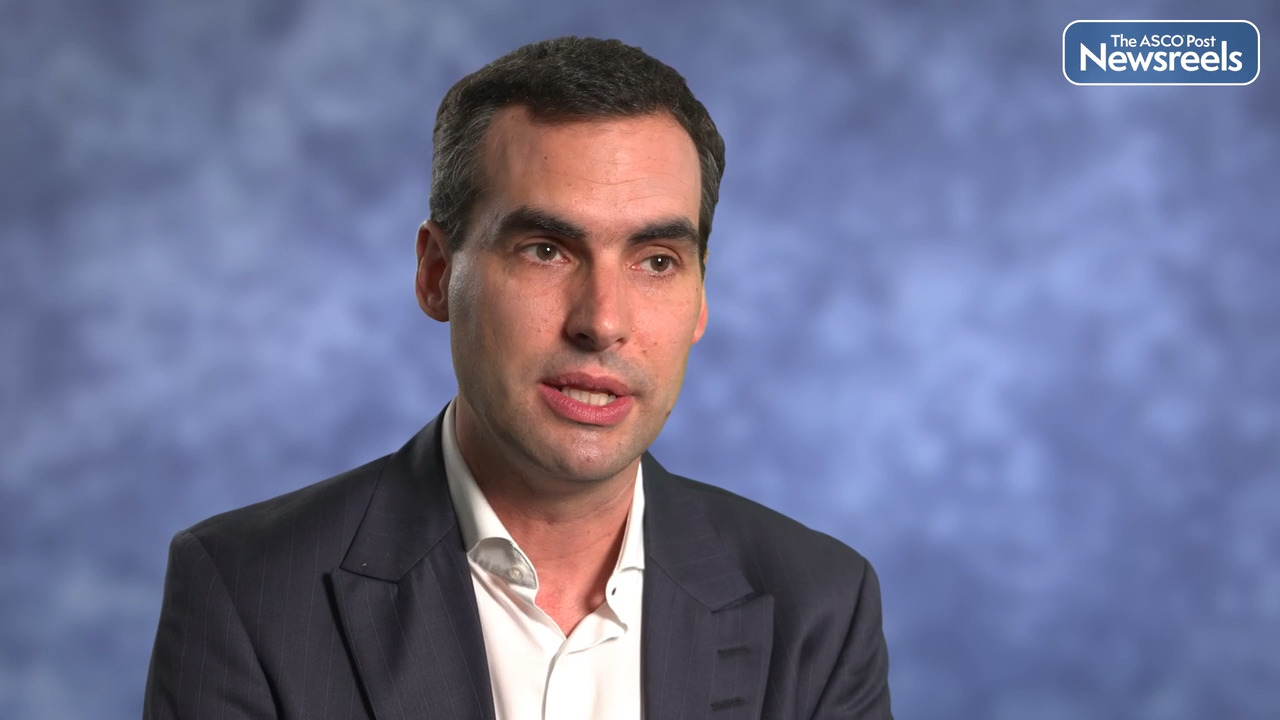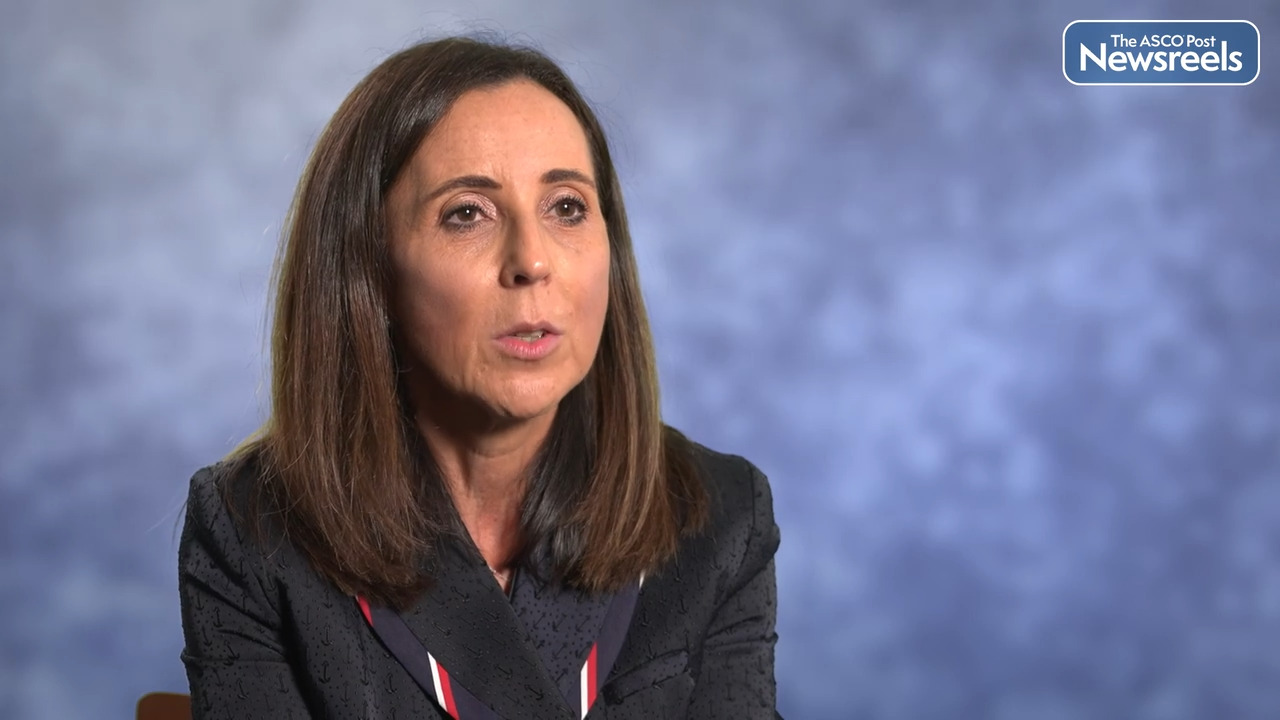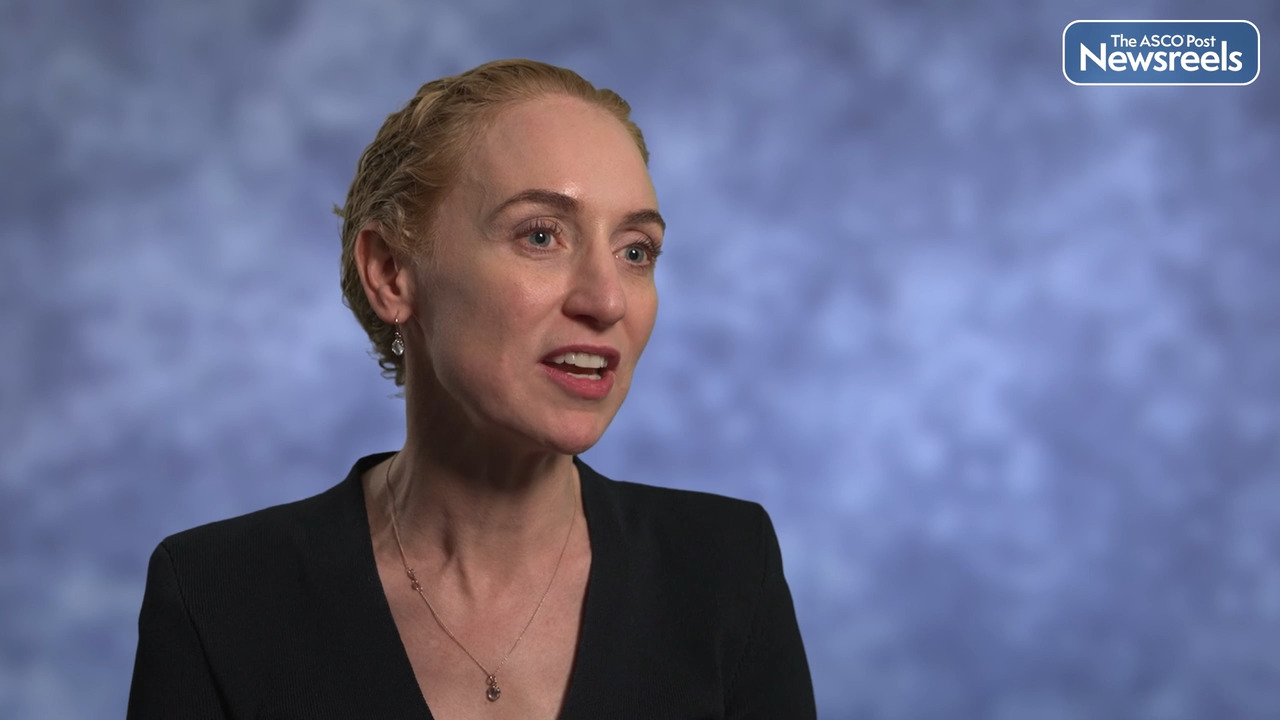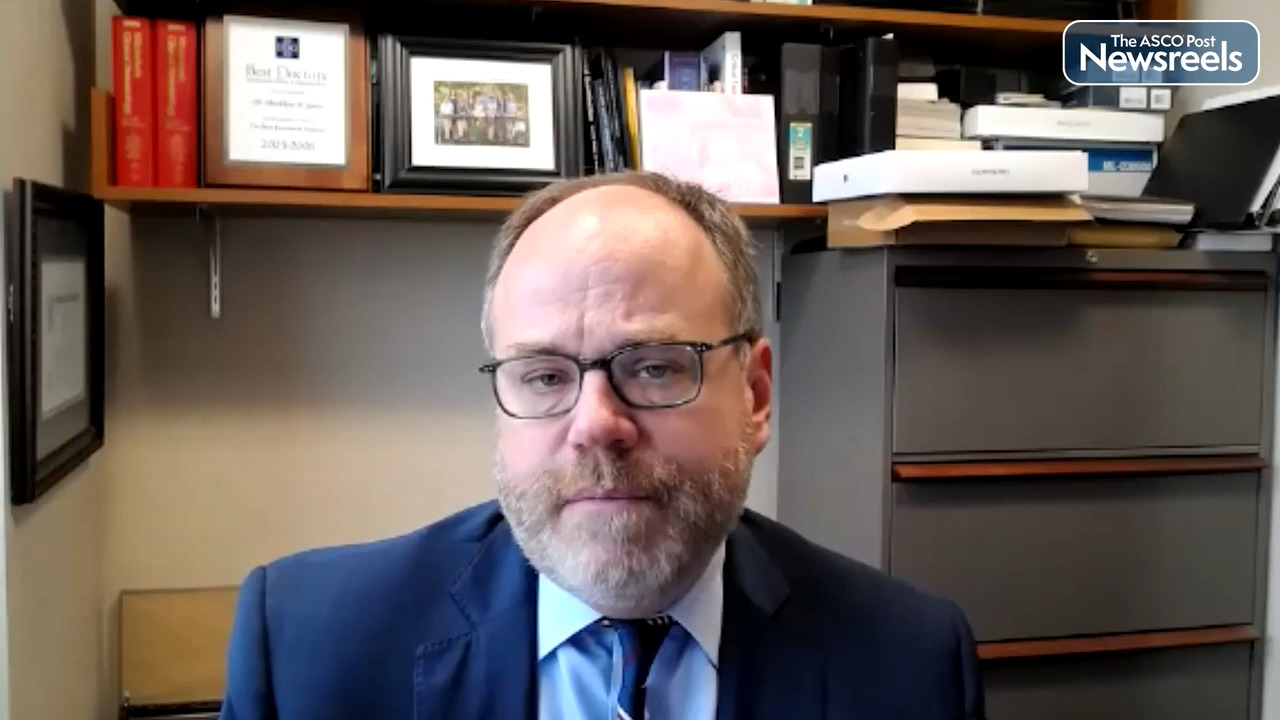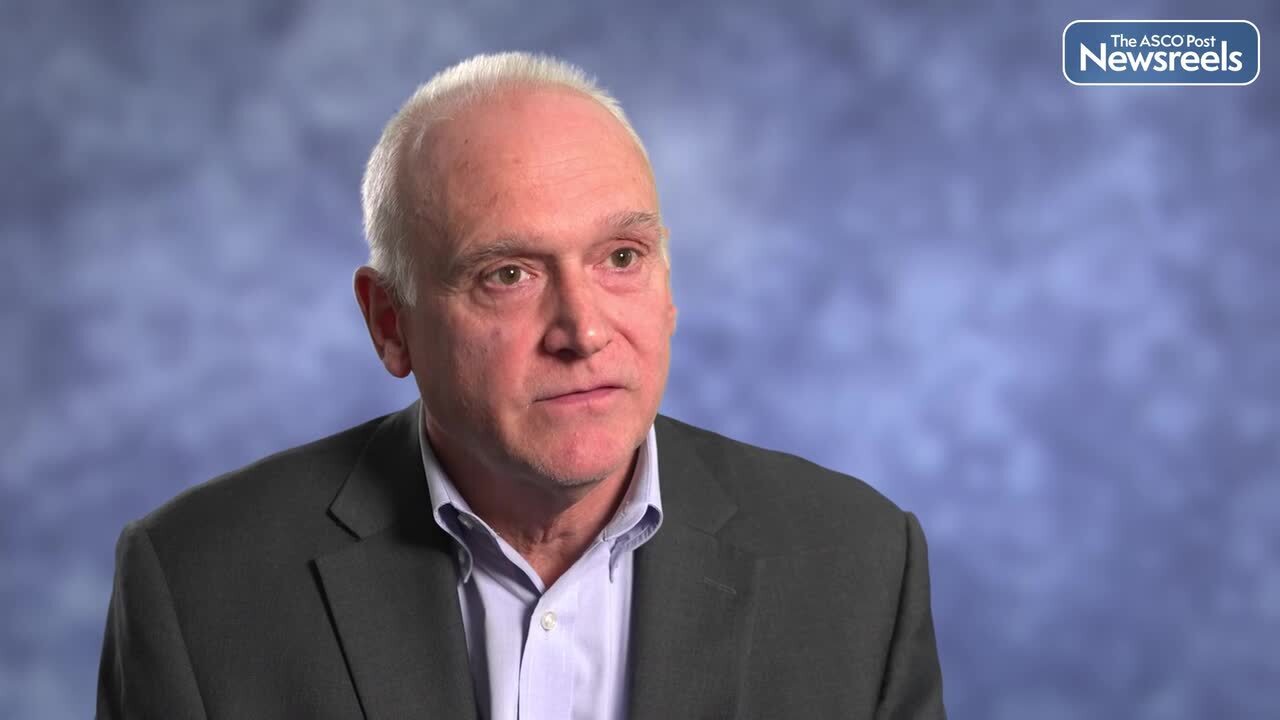Myriam Chalabi, MD, PhD, on Colon Cancer: New Findings on Neoadjuvant Immune Checkpoint Inhibition
ESMO Congress 2022
Myriam Chalabi, MD, PhD, of The Netherlands Cancer Institute, discusses data from the NICHE-2 study, which confirms previously reported pathologic responses to short-term neoadjuvant nivolumab plus ipilimumab in patients with locally advanced mismatch repair–deficient colon cancer. Survival data suggest neoadjuvant immunotherapy may become standard of care and allow further exploration of organ-sparing approaches. (Abstract LBA7).
The ASCO Post Staff
Bernd Kasper, MD, PhD, of Germany’s Mannheim Cancer Center, discusses phase III data from the DeFi trial, the largest study conducted to date for patients with desmoid tumors. The trial showed that the gamma secretase inhibitor nirogacestat demonstrated improvements in all primary and secondary efficacy endpoints. Although considered benign because of their inability to metastasize, desmoid tumors can cause significant morbidity and, occasionally, mortality in patients (Abstract LBA2).
The ASCO Post Staff
Ana Oaknin, MD, PhD, of Barcelona’s Vall d’Hebron University Hospital, discusses an analysis of long-term survival from the EMPOWER-Cervical 1/GOG-3016/ENGOT-cx9 trial. Cemiplimab-rwlc is the first immunotherapy to demonstrate an overall survival benefit as a second-line monotherapy for patients with recurrent or metastatic cervical cancer previously treated with platinum-based chemotherapy but not immunotherapy. The benefit was sustained in this population (Abstract 519MO).
The ASCO Post Staff
Georgina V. Long, MD, PhD, of the Melanoma Institute Australia, discusses results from the CheckMate 915 trial, an analysis of the pretreatment circulating tumor DNA, along with other clinical and translational baseline factors, and their association with disease recurrence in patients with stage IIIB–D/IV melanoma treated with adjuvant immunotherapy (Abstract 788O).
The ASCO Post Staff
Matthew P. Goetz, MD, of Mayo Clinic, discusses recent data from the MONARCH 3 trial of patients with advanced hormone receptor–positive, HER2-negative breast cancer. The study, a second interim analysis, showed that longer overall survival was observed in both the intention-to-treat group as well as in the subgroup with visceral disease. However, neither met the threshold for statistical significance, and further analyses are planned when more data can be reported. (Abstract LBA15).
The ASCO Post Staff
Paul A. DiSilvestro, MD, of Women & Infants Hospital and the Warren Alpert Medical School of Brown University, discusses overall survival results after a 7-year follow-up of the SOLO1/GOG-3004 trial for patients with newly diagnosed advanced ovarian cancer and a BRCA mutation who received maintenance olaparib. Dr. DiSilvestro details the increasing role of such PARP inhibitors in ovarian cancer treatment and their benefit to patients (Abstract 517O).
